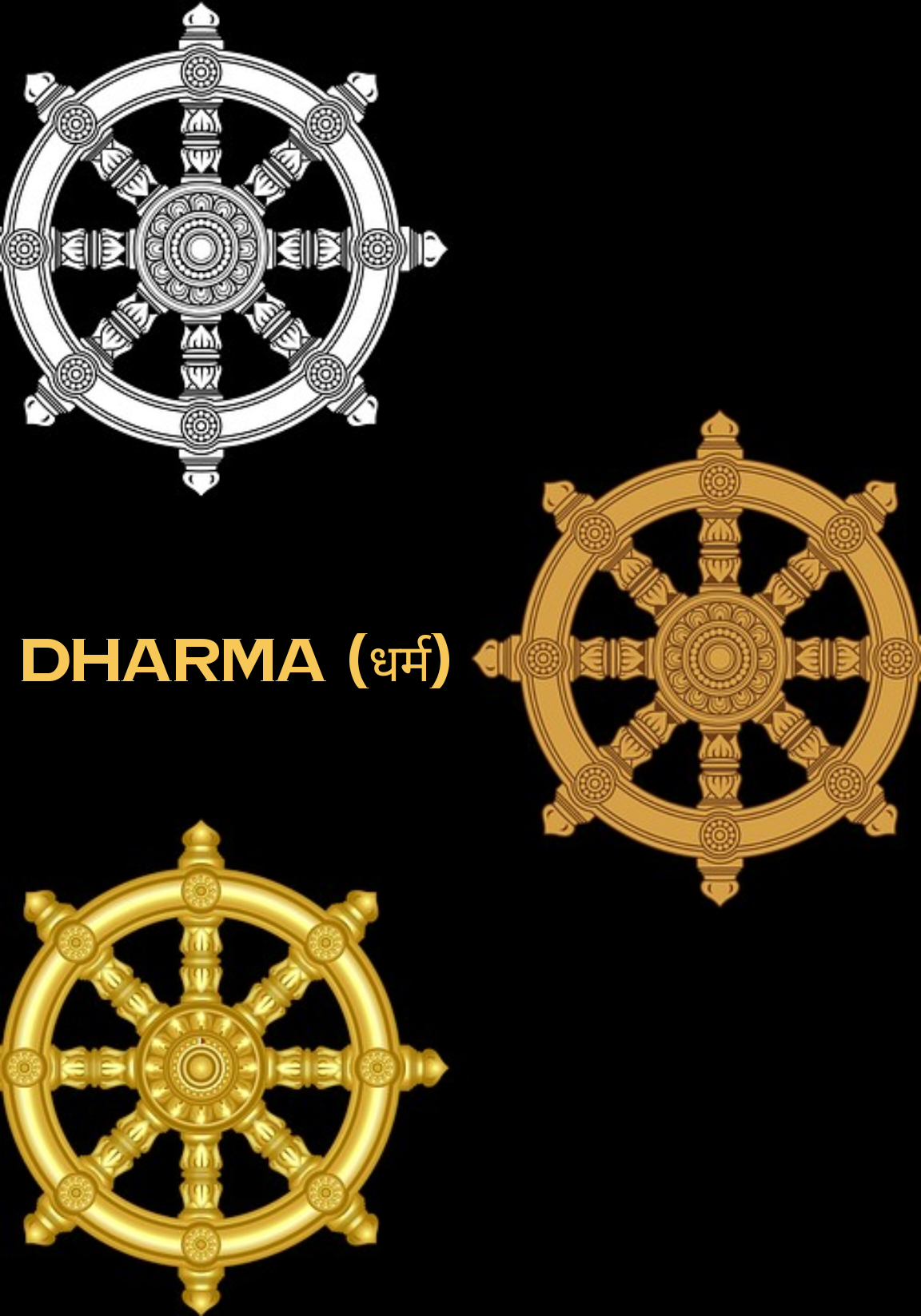DHARMA (धर्म)
DHARMA (धर्म)


An idol situation:
There are two Sons. During their separation, both fight with each other to own the custody of their aged father to serve him, as they both love and respect him above anything else. Both consider serving their father is a matter of fortune. Undoubtedly the father has parented them well with a heavenly demeanor.
An adverse situation:
A father had two Sons. When they were separating from each other one was denied the custody of their father considering all the challenges he and his own family might face because of his father’s growing age. While the other owned the custody of the father without any hesitance.
The son who was denied the custody of his father later with time went on to self-proclaim in public how he could have served the father better had he got the custody of him, for being the self-crowned such great son he is.
The Son who took custody of his father served him in the best possible manner as per his own capabilities. Let him be free to think, decide, roam, go wherever he likes, and do anything as he pleases.
With time, the father started developing intense affection for the son who denied his custody by looking at his demeaning status. The affection in his heart grew so partially that he even ignored the son who was taking care of him also had a family hungry for his love. Probably, the same immoral blind love for their son permitted Dhrutarastra to let Duryadhan disrobe Draupadi in the courtyard in front of the entire ministry.
The son responsible for looking after his father frequently wept in solitude due to the lack of affection he likely deserved from his father. Only his wife and children observed his inner turmoil, anguish, and tears.
There came a day when his tolerance attained its saturation point. His anguish felt so heavy that he instantly felt suffocating. In a surge of anger, he recommended to his father that henceforth, he should dwell with the son whom he likely favored more, urging a swift departure, perhaps in pursuit of greater happiness. The moment was so ruthless that he sobbed in hush. He only wished the father to understand his anguish and divert part of his love towards him. However, the father remained stubborn and unwilling to divide his love into portions.
Now, the son who had previously declined custody finds himself with no alternative. If he had been an exemplary son, he would have regarded this situation as a chance to ultimately serve his father. However, what transpired was destined to become a chapter in history.
He who had once denied the custody of his father and probably had never enquired about his well-being since then, started advertising the negative character of his brother publicly for leaving the custody of their father, with an intention to defame him to the farthest possible. Afterward, he began to advocate that the era of Kali Yuga had transformed the love children have for their fathers, emphasizing their increasing selfishness with each passing day. Ironically, he seemed to overlook the fact that this newfound knowledge held no significance to him just a day earlier.
Suddenly, a set of terms and conditions confined the father, putting his freedom at stake. Restrictions were imposed, preventing him from freely communicating or visiting any family member of the other son. These conditions, which were not in place before, emerged. The new caretakers began acting as if they owned the father's very soul and body, merely for the provision of basic needs.
Presently, the situation has evolved to the point where the father frequently prays for a swift departure. The son who previously provided care without hesitation and without imposing any rules now weeps in the shadows of the night. Meanwhile, the son currently responsible for the father's care, but without any genuine intention of providing free service, is cursing everyone for presenting him with a challenge that he had previously bragged of mastering.
Who is at fault?
The father, who being judicious with knowledge of many ancient scriptures became a victim of uncontrolled partial affection and unchecked favoritism.
The Son, who could not love unconditionally and expected a bit of love in return.
OR,
The Son, who started dominating father’s free will just for serving him?
For me, they are all equally sinners. The consequences of not adhering to Dharma can often be ruthless, merciless, and cruel.
Had Duryodhan not silenced his father that day before stripping Draupadi, had Dhritarastra decided to be vocal to prevent the occurrence of that grave sin, had Dhritarastra agreed to offer at least 5 villages to Pandavas, the entire Kaurav dynasty would not have been demolished in pity…
We seem to have read everything; the real question is if we are capable enough to implement them in our own life. Ultimately, it is the wise who truly uphold Dharma





























